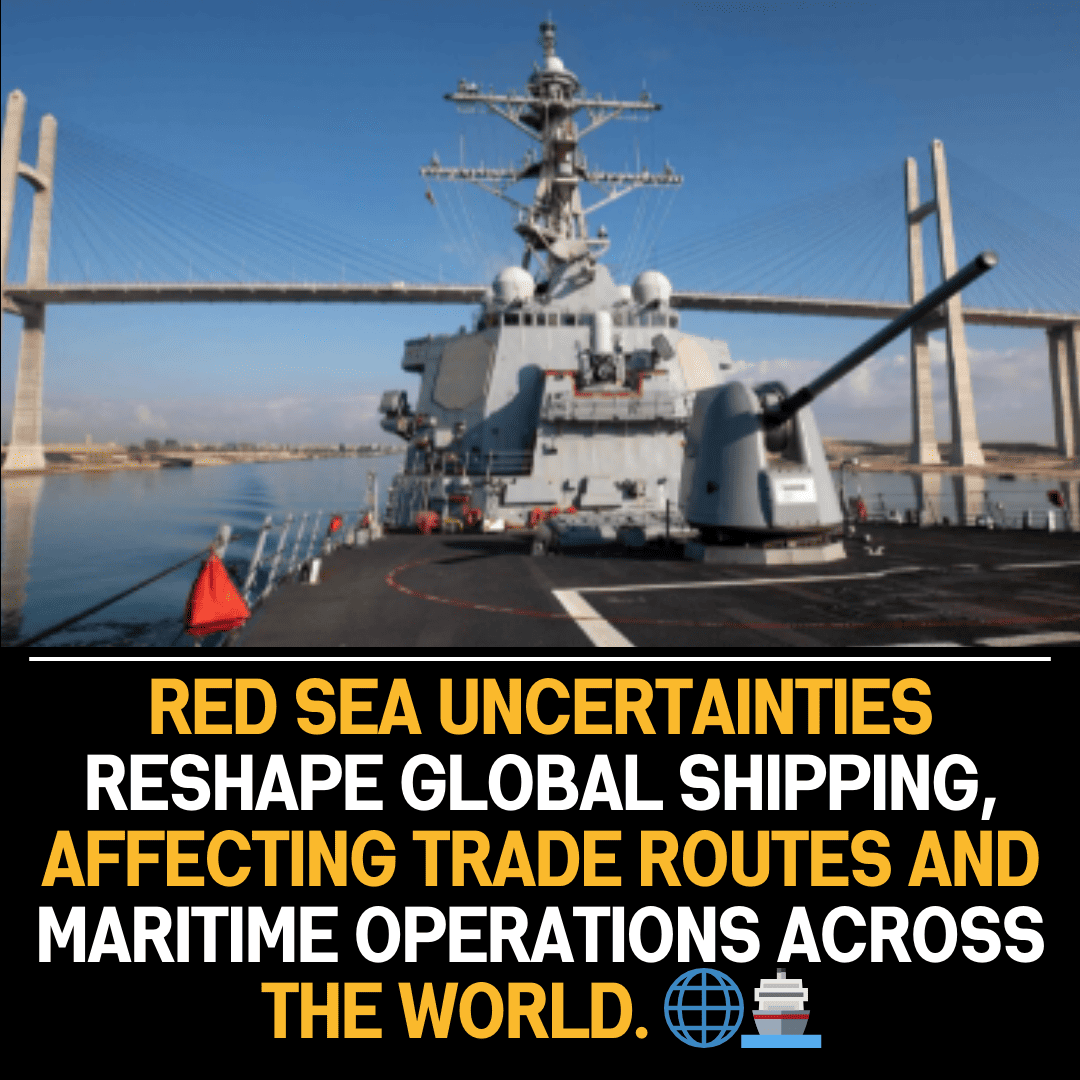The global shipping industry is experiencing a transformative phase triggered by uncertainties in the Red Sea, leading to significant alterations in trade routes and maritime operations across the world. This dynamic shift is not only reshaping the logistical landscape but also having far-reaching implications on international trade.
The Red Sea, a crucial maritime corridor connecting the Mediterranean Sea to the Indian Ocean, has historically been a vital route for global shipping. However, recent uncertainties in the region have necessitated a reevaluation of traditional trade routes. The challenges, including geopolitical tensions and security concerns, have prompted shipping companies and international trade stakeholders to adapt swiftly to ensure the uninterrupted flow of goods.
As a result of this transformation, trade routes are being adjusted to circumvent the uncertainties in the Red Sea, leading to a ripple effect on global maritime operations. Shipping companies are recalibrating their strategies, considering alternative routes, and adopting contingency plans to mitigate risks associated with the evolving geopolitical dynamics in the region.
The implications of this dynamic shift are profound, extending beyond the immediate challenges faced by shipping companies. The altered trade routes impact the efficiency and cost-effectiveness of supply chains, influencing the overall economics of international trade. As shipping lanes are adjusted, transit times may change, affecting delivery schedules and inventory management for businesses worldwide.
Furthermore, the transformation in global shipping introduces new considerations for maritime security and risk management. Companies are investing in advanced technologies and security measures to safeguard their vessels and cargoes against potential threats arising from the uncertainties in the Red Sea. Collaborative efforts between nations and international organizations are also gaining prominence to address security challenges and ensure the safety of maritime activities.
The strategic importance of the Red Sea and its impact on global shipping highlights the interconnected nature of the modern economy. Nations and businesses are navigating this transformative phase with a keen awareness of the need for adaptability and resilience. The shift in trade routes underscores the importance of diversifying transportation options and exploring innovative solutions to maintain the fluidity of international trade.
In conclusion, the transformation of global shipping due to uncertainties in the Red Sea is reshaping trade routes and maritime operations on a global scale. This dynamic shift has implications not only for the logistics industry but also for the broader landscape of international trade. Navigating these changes requires a strategic and collaborative approach, emphasizing adaptability and innovation to ensure the continued stability and efficiency of global supply chains.



